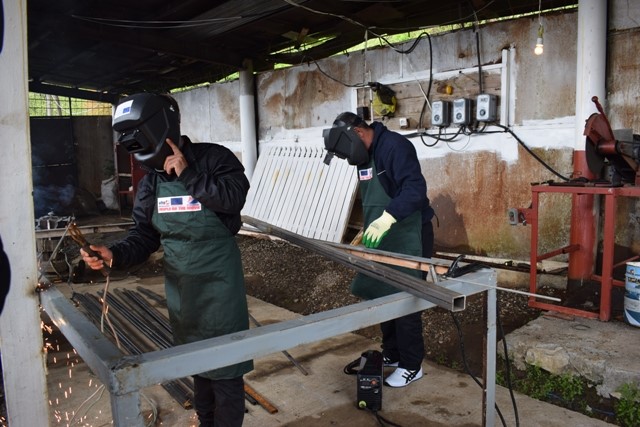Adult Education Centers in Georgia

© Maja Chanturia
The model of Adult Education Centers in Georgia is based on the experience and expertise of German VHS which were adapted to the Georgian context and local needs. The Adult Education system in Germany is well-developed. Up to 1000 such centers are represented in the whole country. They are located both in big cities and small villages. A part of them belongs to the state and is financed by local governments. Others operate privately. Almost all Adult Education Centers are united in umbrella organizations existing on the level of the 16 federal states of Germany. These associations in their turn are members of the state umbrella organization Adult Education Association (DVV). The centers offer diverse educational courses to the population. These courses deal with the following issues: politics, society, nature and environment, cultural education, arts and creativity, health and nutrition, languages, German language for foreigners, profession and career, computer and Internet.
Since 2006 DVV International’s Country office Georgia is engaged in the establishment of Adult Education/Community Education Centers (AEC) in the country. For the moment ten AECs are successfully functioning and providing learning opportunities, vocational, civic and cultural education, social and community activities to on average 12000 beneficiaries annually, including socially disadvantaged population groups, unemployed people, ethnic minorities and Internally Displaced Persons (IDPs). By establishing AECs over the years DVV International has built a system of non-formal Adult Education in Georgia. The aim for the nearest future is to establish at least one Adult Education Center per region of Georgia – up to 15 centers in total.
To transfer the VHS model to Georgia, it was necessary to modify and adapt it to the Georgian context. Among other social problems the high unemployment rate, the high number of IDPs and the high level of emigration create different framework conditions for working within Georgian communities.
In Georgia the establishment of Adult Education Centers is directed towards overcoming social problems, including the integration of IDPs into the local communities, the reintegration of returned migrants and the integration of ethnic and religious minorities, and most importantly, it is directed towards increasing the employment opportunities for beneficiaries. For the beneficiaries of the centers, who are trying to cope with difficult economic conditions, it is very important that learning and participation in educational courses result in such practical benefits as employment and self-employment.
For further information, click here


